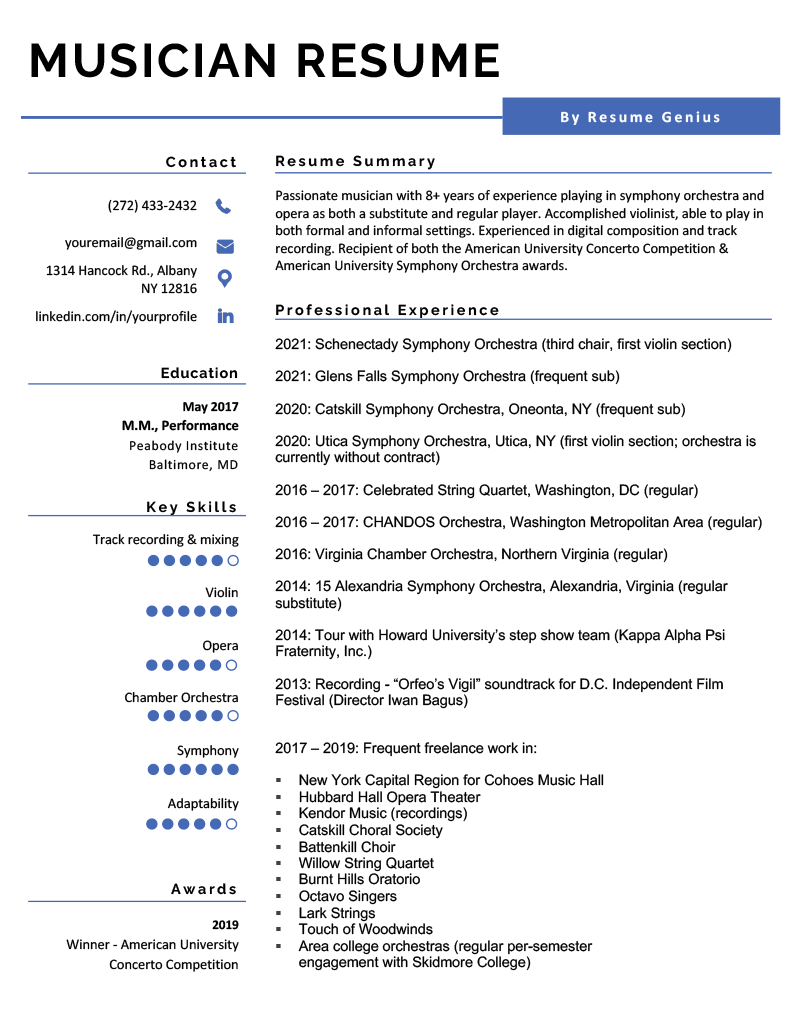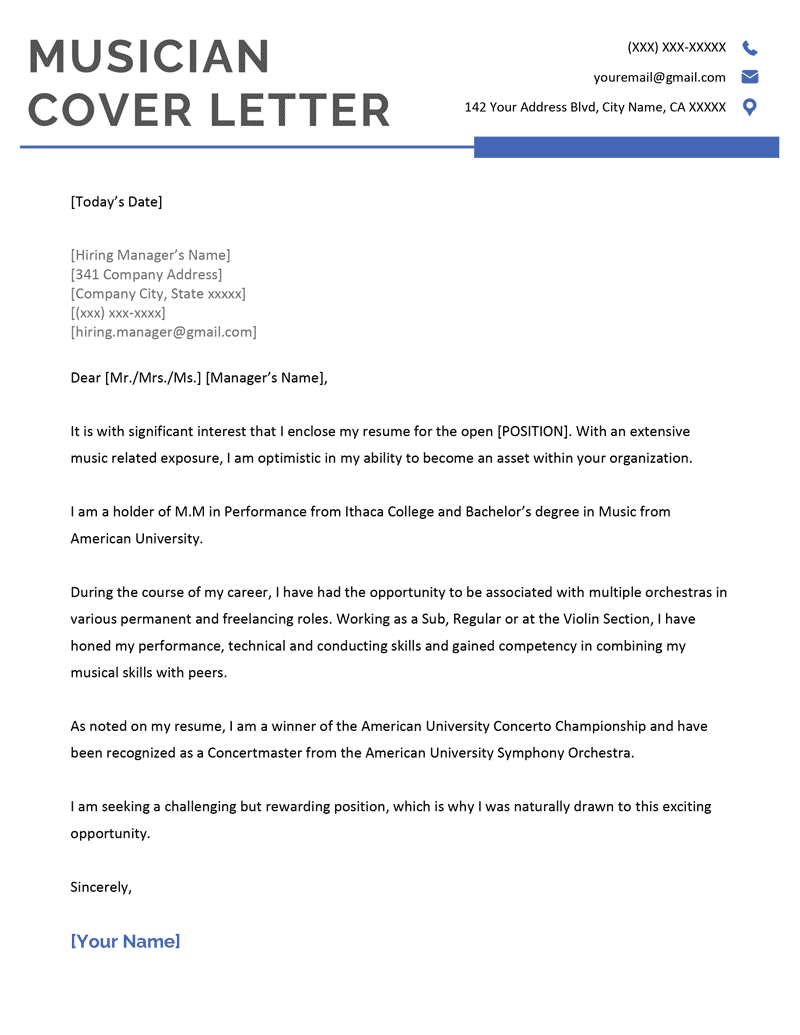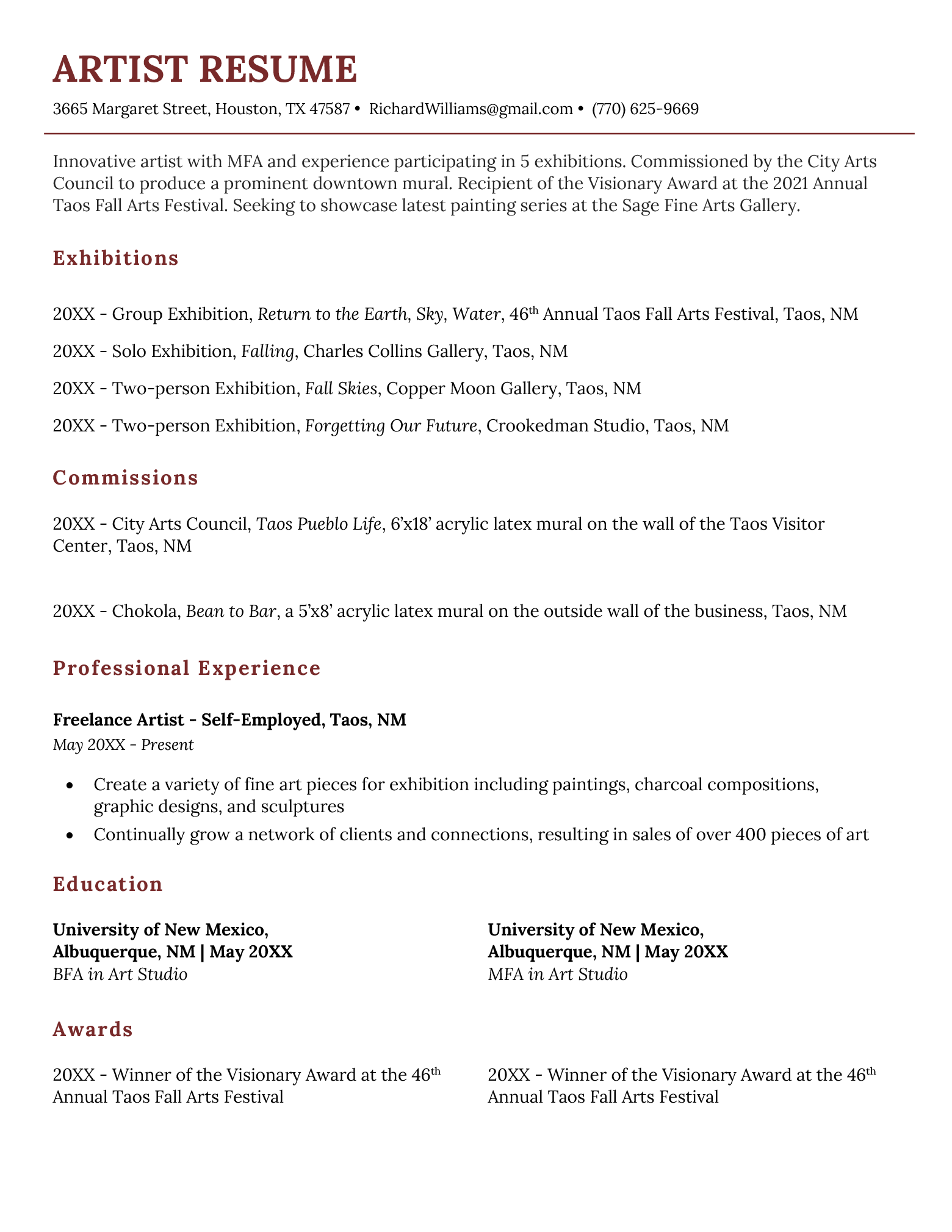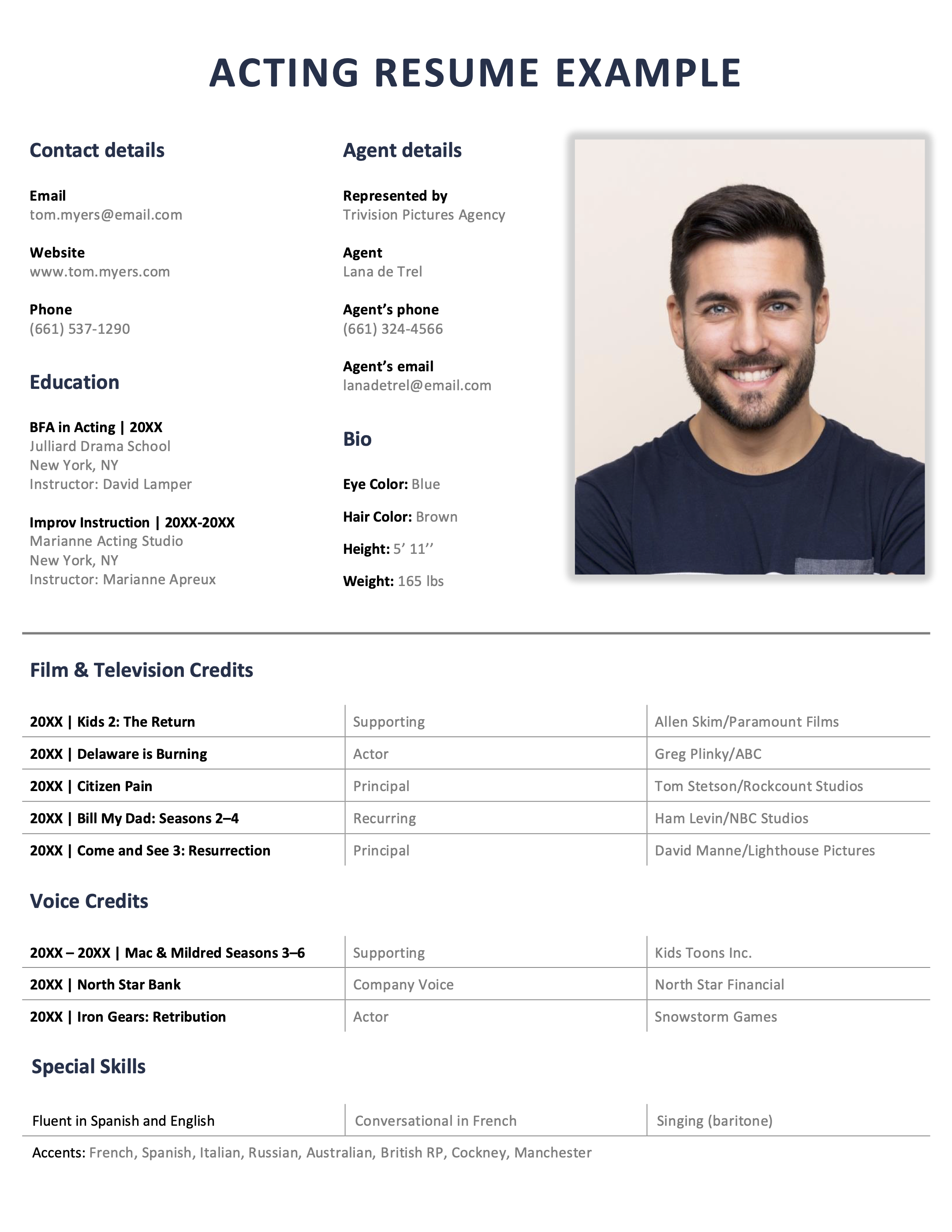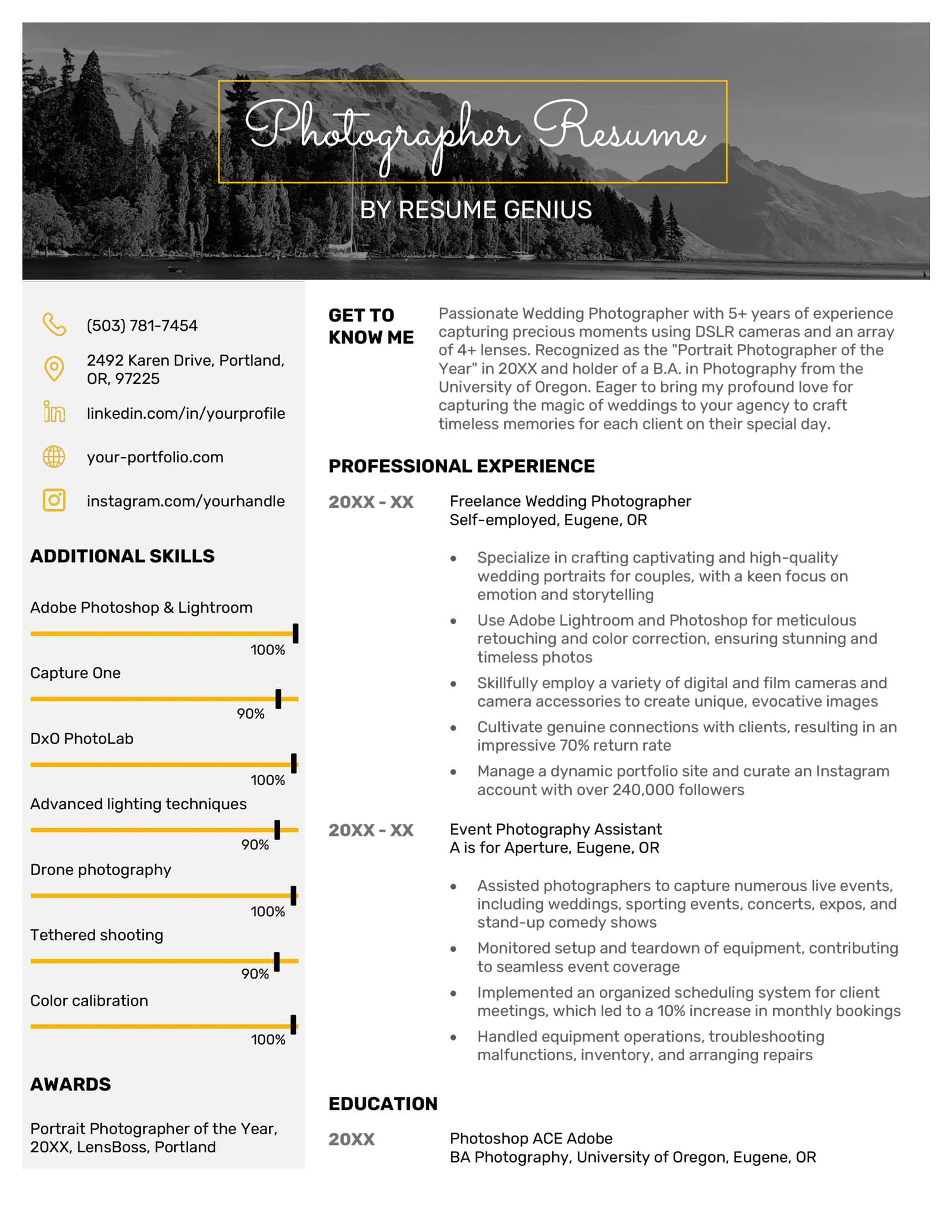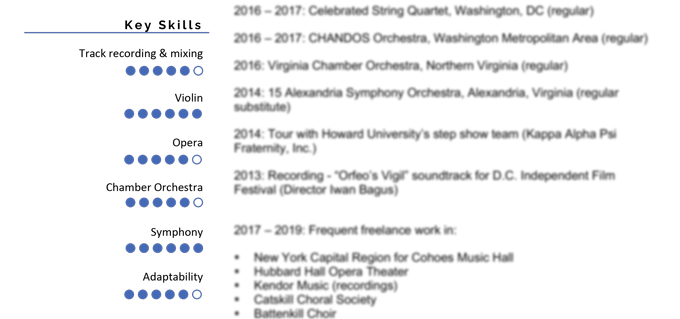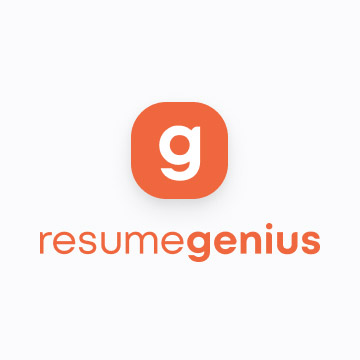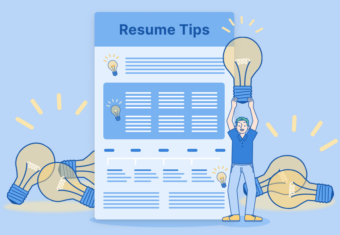Musician Resume Template (Text Format)
FIRST AND LAST NAME
Email: your.email@email.com
Phone: (123) 456-7891
Address: Street, City, State
LinkedIn: linkedin.com/in/yourprofile
Resume Summary
Passionate musician with 8+ years of experience playing in symphony orchestra and opera as both a substitute and regular player. Accomplished violinist, able to play in both formal and informal settings. Experienced in digital composition and track recording. Recipient of both the American University Concerto Competition & American University Symphony Orchestra awards.
Professional Experience
2021: Schenectady Symphony Orchestra (third chair, first violin section)
2021: Glens Falls Symphony Orchestra (frequent sub)
2020: Catskill Symphony Orchestra, Oneonta, NY (frequent sub)
2020: Utica Symphony Orchestra, Utica, NY (first violin section; orchestra is currently without contract)
2016 – 2017: Celebrated String Quartet, Washington, DC (regular)
2016 – 2017: CHANDOS Orchestra, Washington Metropolitan Area (regular)
2016: Virginia Chamber Orchestra, Northern Virginia (regular)
2014 – 2015: Alexandria Symphony Orchestra, Alexandria, Virginia (regular substitute)
2014: Tour with Howard University’s step show team (Kappa Alpha Psi Fraternity, Inc.)
2013: Recording – “Orfeo’s Vigil” soundtrack for D.C. Independent Film Festival (Director Iwan Bagus)
2017 – 2019: Frequent freelance work in:
- New York Capital Region for Cohoes Music Hall
- Hubbard Hall Opera Theater
- Kendor Music (recordings)
- Catskill Choral Society
- Battenkill Choir
- Willow String Quartet
- Burnt Hills Oratorio
- Octavo Singers
- Lark Strings
- Touch of Woodwinds
- Area college orchestras (regular per-semester engagement with Skidmore College)
Skills
- Track recording & mixing
- Violin
- Opera
- Chamber Orchestra
- Symphony
- Adaptability
Awards
2019 – Winner, American University Concerto Competition
2017 – Concertmaster, American University Symphony Orchestra
2016 – Winner, South Carolina Federation of Music Clubs: Brevard Music Festival
Education
2017 – M.M. in Performance, Peabody Institute – Baltimore, MD
2014 – B.A. in Music, American University – Washington, D.C. 2014


